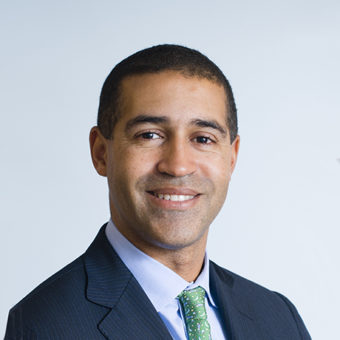Dr. William Curry is a graduate of Harvard College, attended Cornell University Medical College in New York City and trained in Neurosurgery at Massachusetts General Hospital. He has been on the neurosurgical faculty at Mass General Hospital since 2004. He is a national leader in the neurosurgical care of patients with tumors of the brain, skull-base, and spine. He is highly skilled in both open and endoscopic/minimally invasive techniques and is known for his ability to handle the most advanced surgical challenges. Dr. Curry leads and participates in multiple clinical trials for patients with brain tumors and is particularly interested in the development of cellular and immune-based therapies for malignant tumors. He is an integral part of the Pappas Center for Neuro-oncology, the MGH/MEEI Cranial Base Center, and the Harris Chordoma Center at Massachusetts General Hospital.
The Rappaport Award provided immeasurable support in allowing Dr. Curry’s research to move forward. His team is combining herpes virus treatment of malignant brain tumors with immunotherapy approaches in an attempt to generate more effective and durable strategies for this intractable disease. G47D is a herpes simplex virus type I that has been engineered in the laboratory selectively to replicate in, and, thereby, kill, dividing cancer cells. Normal brain tissue is essentially unaffected. Furthermore, the virus is further mutated so that it does not inhibit the generation of an immune response, and inflammation in the infected tumor is promoted. In mice, they have combined intratumoral injection of this potent virus with intratumoral injection of immature dendritic cells, which are generated by culturing bone marrow cells with particular cytokines. These dendritic cells can then process components of dying tumor and travel to lymph nodes where an antitumor immune response is generated. Their work has demonstrated that this combination viral and dendritic cell therapy is very effective, and, in fact, can cure most established subcutaneous tumors in mice. The researchers are currently working on this model in the intracranial compartment and are also combining oncolytic HSV-1 treatment of tumors with other immune modifiers.
The Rappaport funds provided for animals and reagents for these studies. With these data, Dr. Curry has achieved additional funding from the American Brain Tumor Association to continue this work. Two abstracts have been accepted for presentation at national scientific meetings
